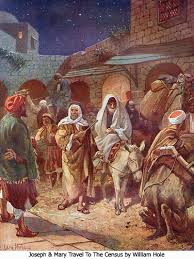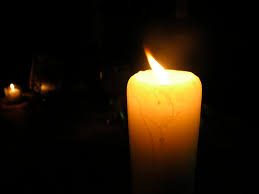Compare and contrast the two sermons I preached on these same texts, three years apart.
In 2009, the excitement of the pending inauguration was on my mind; in 2006, the urgency of discerning the mission of St. Paul's Church: What was God calling this little church to be and to do in Brockton. Read on ...
Epiphany 2-B
January 18, 2009
Samuel 3:1-10
Psalm 139: 1-5-12-17
1 Corinthians 6: 12-20
John 1:43-51
Our Old Testament lesson, from the First Book of Samuel, is about a change in leadership. An old regime has proved to be corrupt and inept and has lost its connection with God, who calls out to a newcomer, a young boy who does not even know what he is hearing, for the next generation of leadership in hard times.
Sound familiar?
It’s an exciting week in America, and I’ve been watching a lot of the pre-inauguration coverage. I’ve been re-reading President-elect Obama’s speeches, especially his important speech on race and his election night speech. Believe me: I am not going to equate Obama with Samuel, or the Democratic Party’s victory with the divine hand of God at work in the election booth. I am not going to re-open the old talk of America being the “city on the hill,” the placed founded by the Puritans to be the embodiment of the kingdom of God on earth. No, there is no way we can equate our history, our politics, with the will of God – that is our national temptation, though, from the beginning of our history – to think that America is special in the eyes of God, that we are chosen, elect, better than everyone else.
I was reminded of Mr. Obama’s remarks at the Saddleback Church in California last summer, during the early days of the campaign, when the pastor, Rick Warren, asked both Obama and McCain:
“Does evil exist?” he asked each candidate, and if so, “Should we ignore it, negotiate with it, contain it or defeat it?”
“Evil does exist,” Mr. Obama began. “I mean, I think we see evil all the time. We see evil in Darfur. We see evil, sadly, on the streets of our cities. We see evil in parents who viciously abuse their children. And I think it has to be confronted. It has to be confronted squarely. And one of the things that I strongly believe is that, you know, we are not going to, as individuals, be able to erase evil from the world. That is God’s task. But we can be soldiers in that process, and we can confront it when we see it. Now, the one thing that I think is very important is for us to have some humility in how we approach the issue of confronting evil because, you know, a lot of evil has been perpetrated based on the claim that we were trying to confront evil.”
And when Mr. Warren interjected, “In the name of good,” Mr. Obama agreed, saying, “Just because we think our intentions are good doesn’t always means that we’re going to be doing good.”[1]
“Speak, Lord, for your servant is listening.”
That’s what Eli told the young Samuel to say to the voice that woke him in the night. Eli himself had lost the connection with God – prophecies were few and far between in those days; Eli’s own sons were greedy and ambitious and faithless, and the news that comes to the young Samuel from God spells the beginning of the end for Eli and his descendents. Yet there is enough wisdom in old Eli yet to know that this young boy is the future, and that God will act through surprising and new agents to pursue the divine agenda.
“Come and see.”
That’s what the disciple Philip said to the skeptical Nathanael, who wondered what all the fuss was about. “Can anything good come out of Nazareth?” he had snorted. Yet, when he meets Jesus, and has the conversation where Jesus reveals that he knows Nathanael, deeply, Jesus begins to reveal the mighty acts that God has in store. When you listen, truly listen, you never know where it will lead you, what new news it will bring, what mysterious wisdom will be imparted.
With the inauguration of Barack Obama, we are on the edge of momentous change in our nation. This is a moment of hope and promise, and given the very real dangers of the world today, a moment of risk and challenge as well. We do not know the direction God’s hand is taking us. We can only, as Obama himself implied, listen humbly, carefully, modestly, and know that, at best, “we can [only] be soldiers in that process” of the working out of what God has in store for the world. The best our nation has to offer – the best any nation has to offer – can only act in service to those purposes. We know God wants justice and mercy and compassion. God wants attention paid to widows and orphans and poor people. We know God’s standards, and if we know anything about where our nation is headed, our progress can be measured by how closely we hew to those standards.
But back to Samuel and Nathanael – Samuel the innocent and Nathanael the skeptical. What lessons do we take away from their stories for this moment in history?
They are both open. They tell the truth, and they know the truth when they hear it. When they don’t understand what is going on, they are not afraid to say so. Both of them receive challenging invitations to come closer to God, to listen more closely to look more closely. Neither know what will come of these closer encounters. When we listen for God, God invites us into a larger world than we had imagined before.
If they took those risks, we can, too. We can listen for God’s voice, in our nation in our community and in our own lives. Can we? As Barack Obama has been reminding us lately, Yes, we can!
Epiphany 2-B
January 15, 2006
Samuel 3:1-10
Psalm 139: 1-5-12-17
1 Corinthians 6: 12-20
John 1:43-51
Come and see.
By all reports, you – meaning you, people in the pews – rarely ask people to join you here in church. You don’t often say to your friends, “Come and see.” According to a recent survey, “Adults are lukewarm about God.” In a survey of Protestant church-goers, “not quite one out of every four named their faith in God as their top priority in life.”[2]
Stewardship, evangelism and service to needy people outside the church doors: in this same survey, Protestant pew-sitters admitted they weren’t doing much. “Church budgets are typically set based on the assumption that the average congregant will give two to three percent of their income to the ministry.” Even among those fervent born-agains: only six percent tithe, or give ten percent of their income to the church. “Most churched adults do not verbally share the gospel in a given year …” “For every two churches that consider the congregation’s breadth of ministry to people not connected to the church to be an indicator of spiritual health, there are five churches that focus on the amount of ‘in-reach’ activity undertaken [to people within the church].”
And yet what does Philip say in the Gospel? “Come and see.”
Philip said this to a very skeptical person, Nathanael, the faithful Jew, who spoke the truth: “Can anything good come out of Nazareth?” He was skeptical indeed at the message of Philip, that this Jesus was the one prophesied by Moses and the prophets, the one who was the Good News embodied. Nazareth, in grubby Galilee, was a nothing town, scorned by people in the know. Nathanael might even say, Can anything good come out of Brockton?
But I have a feeling, after a few weeks here, that all of you indeed know what you come here to see, and to feel, and to do.
Come and see.
Think for minute: what is it that you come here to see?
Add it up. It’s worth asking others to come and see it, too, is it not? You are not alone in not inviting folks in – all the surveys tell us that is what most Protestants just don’t do very often. You could do it. There is something for others to come and see. Tell them why you are here.
Listen to Jesus’ reply to Nathanael, who finally recognizes that Jesus is the Son of God. “Do you believe, Nathanael, that I am some sort of conjurer or fortune teller? That because I remembered you under the fig tree, I am the King of Israel? Well, you haven’t seen anything yet.”
When people say to you, Come and see what is happening at St. Paul’s in Brockton? You can say to them, you haven’t seen anything yet.
This is what Jesus told Nathanael he would see: “the heaven opened and the angels of God ascending and descending upon the Son of Man.”
“For us, this image of angel traffic between heaven and earth might at first seem pleasant, perhaps a little sweet. But it probably at once meant something deeper to Nathanael. He’d know well the Old Testament story of Jacob’s dream, where Jacob saw a ladder reaching to heaven with angels going up and down. Nathanael might also have noticed the difference in the image Jesus used. Jesus said the angels were going up and down not on a ladder, but on the Son of Man -- a subtle, but very important, difference. In both instances, the image of angelic traffic points to the connection between heaven and earth, the connection between God and God’s creatures. But in the image Jesus used, that connection between God and us resides in the person of Jesus. Jacob’s dream becomes very personal for us all.”[3]
For Nathanael, the faithful Jew who has studied and lived with the Torah, Jesus issues an invitation: there is more. You can connect with God, not just through that story of the ladder to heaven, but here, with me , with the person of Jesus. The connection with God that has always been there is renewed, with a new and shocking image. It’s like Jesus is saying to Nathanael, wake up. See something new in the old story. Something new is coming out of that old, forlorn city of Nazareth.
There is more, much more, to Brockton, and to St. Paul’s. Can any good come out of Brockton? Out of St. Paul’s? You can answer that question; come and see.
In the Old Testament lesson, we read of the young boy, Samuel, sent by his mother to serve God along with the old prophet Eli. Samuel is awakened in the night, and the aged Eli sends the boy back to bed. But the voices persist, and Eli realizes there is more to this disturbed sleep than a small boy’s dream. “Go and lie down,” Eli said to Samuel, “and if he calls you, say, ‘Speak, Lord, for your servant is listening.’ So Samuel went and lay down in his place, [and] the Lord came and stood there, calling as before, ‘Samuel! Samuel!’ And Samuel said, ‘Speak, for your servant is listening.’”
For what are we listening? You know the answer. You know why you are here. Come and see. Go and tell.
[1] From “Beliefs: Invoking a Presidential Revelatory Moment” by Peter Steinfels (New York Times, Jan. 16, 2009)
[2] All quotes from Surveys Show Pastors Claim Congregants are Deeply Committed to God but Congregants Deny it!, Barna Update,








.jpg)
.jpg)







.jpg)
